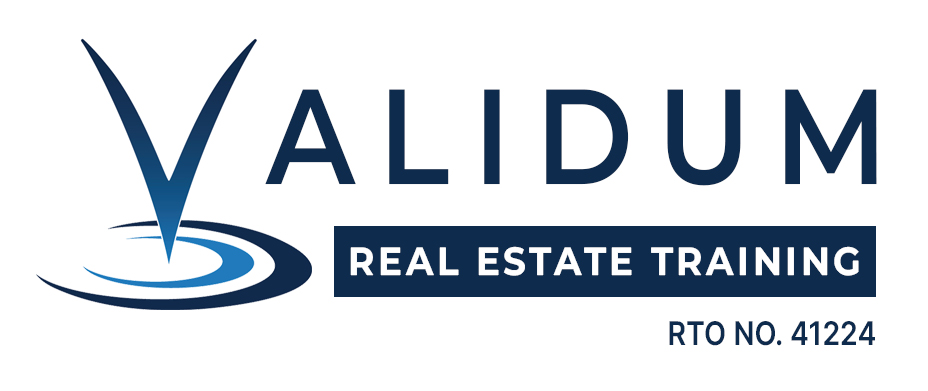What Do the Top Sales People Do?
“What do the top sales people do?” is a question I am constantly asked as a real estate trainer.
What do they do that’s different? Why are they successful? What the formula? These questions get asked by our learners so often that I thought I should cover it in this month’s feature.
I have a heap more to share but here are my top 11 for July!
-
Learn how to handle the word ‘no’ and be comfortable with rejection.
When first embarking on a real estate career, like most I was thrown into a workstation surrounded by 10 agents (it was literally a sales pit). But the experience was priceless.
As I would watch agents crumble, cry, fight, scream, some would leave the office never to return, some would throw their phone across the room! Ah yes, the highs and lows of sales.
You learn so much when you watch how people react to rejection or that ‘no factor’ as we called it. However, the best would take a deep breath, their recovery time was instant, never to look back. That blew me away. Don’t get me wrong, this takes a lot of practice.
I have 10 years plus in the industry, I am still mastering it. But the top people I see in this industry have that in common. They get back on the horse and act like nothing has happened!
-
‘Go to lines’: Pulling the ‘rabbit out of a hat’.
I quickly noticed the top guys around me had solutions or fixes to the rejection lines from clients.
I had to learn a new language, condition myself like an athlete before a big race. I needed to stop using certain words that signalled I was selling something or sounded even desperate. I had to develop a unique vocabulary based on the fact that every word I spoke needed to make me look like the expert who is generously making myself and my knowledge available to help them.
-
Know your client and your competitors.
Today, people are much more equipped to do their own research, diagnose their own challenges and find their own solutions. They have the upper hand, really. So be prepared to think like the client, do the research they would be doing and conduct the due diligence the client would. Research your competitors and what they are doing – it’s always a good investment.
-
Be courteous and genuinely try to help.
Today, we’re all more connected than ever, so I try extremely hard to make sure I treat everyone I talk to equally and that they get value out of our conversation. You never know who will one day become a client or prospect, or who might be able to refer you.
-
Be a connector.
Don’t be afraid to recommend a service that fits a prospect’s needs, connect them with someone else they can speak to who might be able to help or send your prospect some useful content with no strings attached.
If they take your advice and it leads to good things, they’ll be a supporter for you. Sometimes being the conduit is just as rewarding as a sale.
-
“Can I send you some information?”
My mentors always told me, “If you send information, it is not selling,” or, “Direct email means you are frightened to pick up the phone.”
The argument is that if you can’t establish a client’s needs over the phone then they are not going to take the time to read your information, or they were asking because they wanted to get rid of you!
I agree, sort of.
The client these days is so well-versed with research that I think sending information can be really advantageous and helpful.
If they’re going to complete half of the process without you, you at least want your content to shape their decisions to some degree. Just make sure the information you send is accurate and useful.
A good tip is to avoid offering to send information before you find out what it is a prospect really needs. Instead of saying “Can I send you more information?”, I would say “I was discussing [x] with a client in a similar position and I sent them (A, B, C resources) and they found this really useful. So, do you think you might find it helpful if I sent you that material?
-
Get commitment and permission to contact a prospect again.
What has worked for me is at the time I send information out, I say to a prospect straight up (insert cheeky smile) “I’m going to send you a marketing brochure and you will need to read it carefully before our next call. It will only take you [x] minutes and will clarify many of your questions. Can you do that?” I try to secure a commitment from the prospect that they’ll read it, and get permission to contact them again. If you can secure that, the prospect has just handed you a reason to contact them again.
-
Follow-up.
How often do you “touch base” with your prospects?
I see all the nodding heads already – I know I am guilty as charged.
We tend to use this line because they haven’t gotten back to us or they haven’t bothered to. Maybe the timing wasn’t right or maybe they just simply didn’t like the sound of my voice. One thing I learned very quickly is, like rejection, you can’t take it personally – because it’s just not personal.
You just have to keep “touching base”.
-
End on the right note.
I always ask at the end of a call, “Was this call helpful?”
Assuming I was helpful, they then say “Yes,” and then I would say, “You’re welcome.”
It does sound kind of weird and rehearsed, but it’s a good thing to do.
If you want the feedback directly you could ask, “Was this call helpful for you?” or even “What are your thoughts from this call?”
-
Here’s an interesting thought…
I recently attended a webinar and the speaker mentioned the line, “Thank you for your time”, before proceeding to tell us to never, ever thank a prospect for their time.
His reasoning was that if you thank a prospect, you are suggesting they did you a favour when in fact it’s them that gave you ‘their time’ because you were obliging, and they’ll continue doing so if you continue to be helpful.
I thought that was somewhat interesting. At the same time, don’t hold your breath at the end of a call waiting for your prospect to thank you for your time.
-
Track and measure.
Most importantly, make sure you track which links your clients are clicking in your email, which pages of your website they view, and how long they stay on your site to read your material.
As the old saying goes, “What gets measured gets managed”.
I never realised the influence and the importance analytics can make to our business. There are some insightful SEO/digital marketing people who can set up some fantastic insights into tracking your traffic. Give me a call and I can recommend a few we use!







